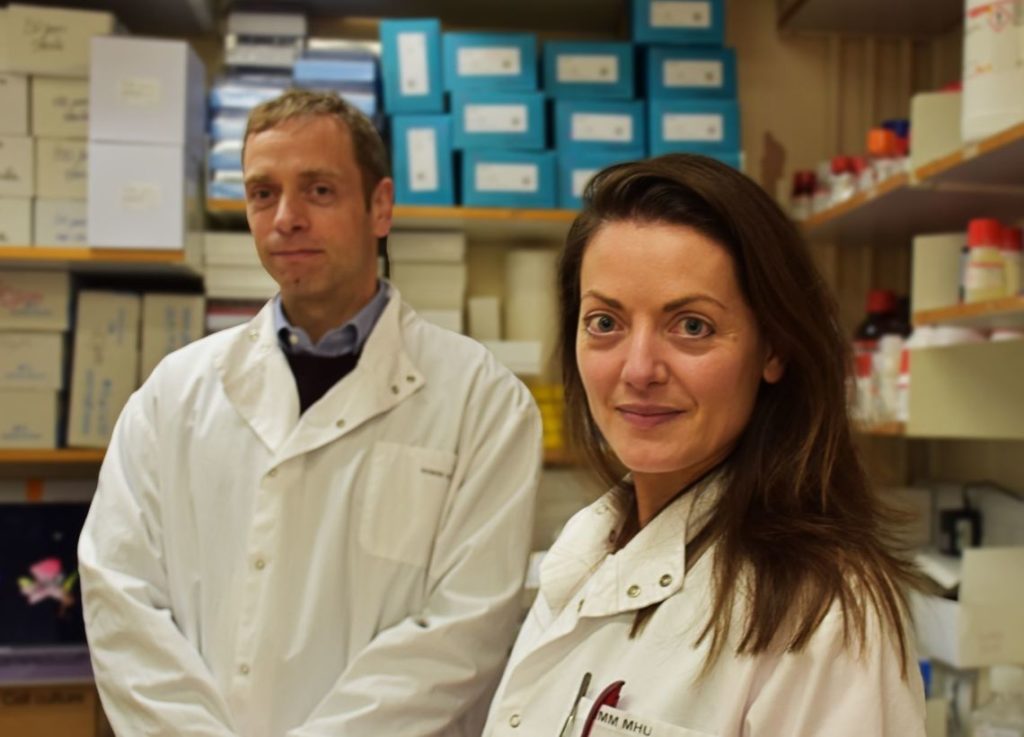A new Oxford-based drug-discovery company has been launched with the aim of developing targeted therapies for a specific family of blood cancers.

Alethiomics was founded by Oxford BRC-supported researchers Professor Adam Mead and Professor Beth Psaila, with support from Oxford University Innovation.
Alethiomics aims to apply innovations in single-cell multi-omic analysis to the development of novel therapeutics for myeloproliferative neoplasms (MPNs).
MPNs are a group of chronic blood cancers that begin with mutations occurring in cancer stem cells in the bone marrow. While current treatments can relieve symptoms, they do not tackle the underlying drivers of the disease, meaning patients have poor prognosis.
Identifying new drug targets within these mutant cells is critical to developing targeted and effective therapies.
Professors Mead and Psaila have pioneered the use of single-cell multi-omics approaches to better understand the biology of MPNs and to discover novel molecular targets as the basis for drug discovery.
They have also developed bespoke platforms for target validation to speed up successful translation to the clinic.
“The Alethiomics TARGET-seq platform simultaneously detects DNA mutations, the RNA transcriptome and cell surface proteins from individual cells to provide a holistic understanding of pathologies and more intelligent target identification,” says Professor Mead, the Oxford BRC’s Co-theme Lead for Haematology and Stem Cells, and leader of the Haematopoietic Stem Cell Biology Group at the MRC Molecular Haematology Unit in the Radcliffe Department of Medicine.
The spin-out has received £6m of seed financing from Oxford Science Enterprises. “We have been tremendously impressed by the unparalleled expertise in haematological cancer of Prof Mead and Prof Psaila, and their passion to bring new therapies to the clinic to help benefit patients,” says Dr Claire Brown, Life Sciences Partner at Oxford Science Enterprises. “We look forward to building on their foundational discoveries and to developing clinical programmes therapies that deliver on the early promise of the technology.’
“We are really excited to have founded Alethiomics,” says Prof Psaila, leader of the Normal and Malignant Megakaryocyte and Platelet Biology Group at the MRC Molecular Haematology Unit. “Alethiomics will enable us to translate our breakthrough discoveries in novel target identification into precision medicines to improve the lifespan and quality of life for the patients we care for in the clinic.”
Watch a video explaining the work of Profs Mead and Psaila: